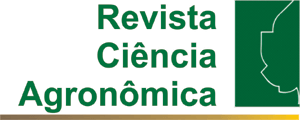ABSTRACT
Vast areas of the Brazilian Amazon have been deforested for the expansion of livestock and the agricultural frontier, which has resulted in soil exhaustion. It is therefore urgent to reduce deforestation and encourage sustainable land use to promote social and economic development in the region. The aim of this study was to evaluate the impact of different land use systems (an agroforestry system, cassava cultivation, non-degraded pasture, native forest) on the chemical properties of the soil (0-40 cm) in the mesoregion of the Juruá Valley, in the state of Acre, Brazil. Principal component analysis showed the soil in the forested area (reference) has greater values for P, Ca2+, Mg2+, K+, Na+, sum of bases, and cation exchange capacity; while hierarchical cluster analysis suggested little dissimilarity to the soil in the agroforestry system, and high dissimilarity to the soil in the areas of cassava cultivation and pasture. The results therefore support agroforestry as the most sustainable land use system, compared to cassava cultivation or pasture.
Key words:
Soil fertility; Amazon Rainforest; Cassava cultivation; Pasture; Multivariate analysis

 Thumbnail
Thumbnail
 Thumbnail
Thumbnail
 Thumbnail
Thumbnail


